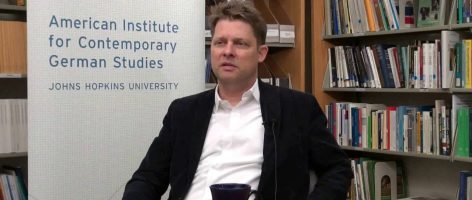Syrien-Krieg: “Diplomatische Erfolge nicht in Sicht”
Featuring former fellow Guido Steinberg via Tagesschau on April 16, 2018.

Islamist Terrorism in Germany: Threats, Responses, and the Need for a Strategy
Policy Report 66 One year after Germany’s largest jihadist terrorist attack, and only two years after Angela Merkel’s decision to open the country’s borders to nearly a million refugees and …

Refugees, Terrorism, and a Failing Security Architecture: Germany’s Domestic Security after the Elections
In 2016, the domestic security situation in Germany deteriorated to a degree unknown since the “German autumn” in 1977, when the Red Army Faction or RAF began its campaign to …
O, Brother, Where Art Thou? The SPD Must Return to Transatlantic Politics
Guido Steinberg and Nicole Renvert of the Berlin-based Stiftung Wissenschaft und Politik detail the rise and — more recently — fall of SPD transatlanticism. The NSA debate has uncovered a …
German Jihad: Reading the History of al-Qaeda through a German Lens
A new book by Guido Steinberg Whenever American counterterrorism officials met with their German colleagues in 2004 and 2005, the radicalization of European Muslims was one of the main subjects …
From Ron Arad to Gilad Shalit: Germany’s Role in the Middle Eastern Prisoner Exchanges
On October 18th, 2011, after five years in captivity, Israeli soldier Gilad Shalit was released by Hamas in exchange for 1,027 Palestinian prisoners. Behind the negotiations between Israel and Hamas stood an unexpected third party: Germany. In his essay From Ron Arad to Gilad Shalit: Germany’s Role in the Middle Eastern Prisoner Exchanges, Dr. Guido Steinberg, Researcher at the Division for Middle East and Africa at the Stiftung Wissenschaft und Politik and a terrorism advisor in the German Federal Chancellor’s Office from 2002 to 2005, examines the history of German mediation in the long line of prisoner swaps in the Middle East.
Counter-Terrorism and German-American Relations: A German Perspective
Issue Brief 26 German-American relations reached a historic low point during the years of the second Bush administration. Many argued that this was mainly due to widespread disagreements and a …





